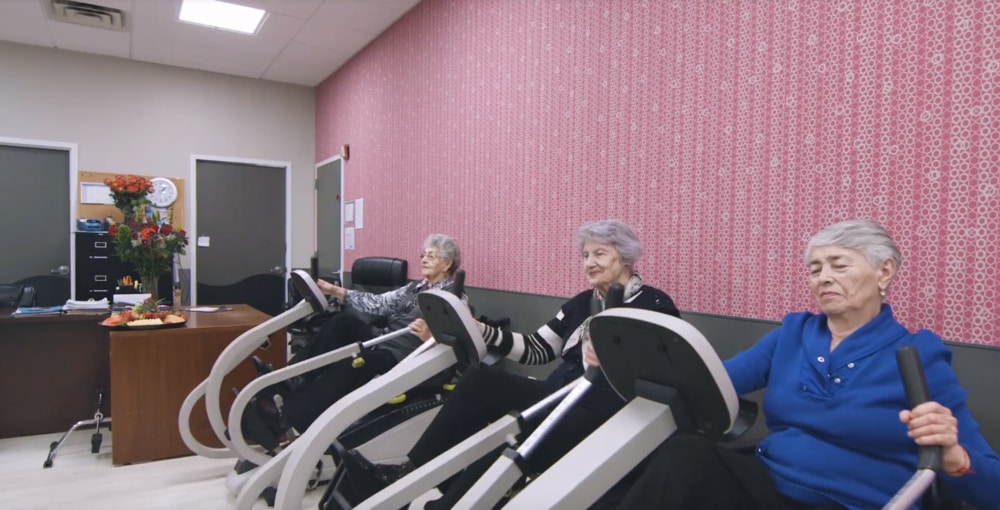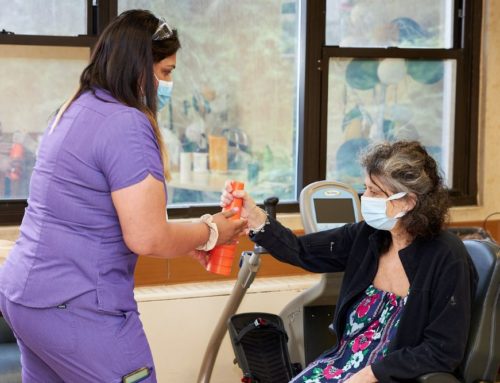4 Ways to Reduce Arthritis Pain
Arthritis has several types and causes, but the symptoms are often the same. The most common complaint is pain from inflammation in the affected joint. The discomfort makes even the simplest tasks difficult and often worsens as you age. Luckily, medical professionals have discovered a few possible methods to reduce arthritis pain and maintain your independence.
Physical therapy is one of the most recommended treatments for managing arthritis symptoms. A trained therapist guides you through joint-friendly movements to increase strength and flexibility. The program will also include the frequency and duration of your sessions to match your limitations and goals. For more options, consider the following tips, keeping in mind that as conditions vary, so will the results.

Reduce Arthritis Pain
In the early stages of arthritis, the pain is manageable and often easy to ignore. As the condition progresses, so does the discomfort. Taking steps to prevent worsening symptoms and relieving the pain when it does occur is essential to maintain your lifestyle. The most recommended treatments include medication, physical therapy, dietary changes, and stress reduction, which we’ll discuss in depth below.
1. Medication
Medication is often used to reduce arthritis pain. The types of medications prescribed for arthritis differ based on the specific type of arthritis being treated. Your doctor will recommend the best option for your pain level and condition. The downside is that medications may slowly lose their effectiveness with prolonged use. The most common treatments reduce inflammation, allowing you to move the joint with minimal discomfort.
2. Physical therapy and exercises
Physical activity is another treatment option for managing your arthritis pain, depending on the severity of your condition. According to the Centers for Disease Control, low-impact options are best to reduce the risks of injury. These include swimming, walking, biking, dancing, or gardening.
At first, you may notice pain, swelling, and stiffness, but these are normal with a new exercise routine. Start slowly and take frequent breaks to let your body rest and heal between workouts. You can also meet with a physical therapist since they are experts at customizing exercise programs and safely guiding you through them.
Adults living with arthritis should strive to engage in at least 150 minutes per week of moderate-intensity exercises such as brisk walking, or alternatively, 75 minutes per week of vigorous-intensity aerobic activities like cycling at a speed of 10 mph or faster, or a blend of both.
Additionally, incorporating muscle-strengthening activities at least two days a week is recommended, alongside exercises aimed at improving balance, such as standing on one foot. If meeting the 150-minute target is challenging, individuals should remain as active as their health permits, adjusting their activity levels based on arthritis symptoms. It’s emphasized that any amount of physical activity is beneficial, even if it falls short of the recommended guidelines.
3. Eat healthy
No special diet exists that cures your arthritis, but eating healthy may reduce your pain. A balanced diet featuring the vitamins, nutrients, and minerals your body requires ensures it functions properly. The right food choices also aid with weight management, reducing stress on those tender joints.
Recent studies indicated that some foods also have anti-inflammatory properties, reducing the swelling causing your pain. These include dietary fibers, whole grains, fruits, and vegetables. Foods containing omega-3 fatty acids, like fish, or walnuts, may also be beneficial for reducing joint stiffness and pain. Avoiding inflammation-boosting foods, including trans or saturated fats, is also recommended.
4. Reduce stress
This may surprise you but numerous adults suffering from arthritis experience feelings of anxiety and depression. When stressed, your body reacts by increasing your heart rate, tensing your muscles, and switching on your immune system’s inflammatory response. The more often you feel this way, the more damage is done to those arthritic joints. Pain increases, reducing your ability to manage your condition.
Stress management isn’t easy, but it is necessary to reduce arthritis pain. Discussing your worries with a therapist, family member, or close friend is a good place to start. You can also try relaxation techniques, like yoga, tai chi, meditation, or breathing exercises. Avoiding stressors as much as possible is also recommended.
Symptoms of anxiety and depression are common among adults with arthritis (https://www.cdc.gov/arthritis/communications/features/arthritis-mental-health.htm), and these indicators have been linked to diminished response to arthritis therapies and decreased quality of life. Symptoms may include:
- Anxiety
- Agitation – difficulty remaining still or calming racing thoughts
- Difficulty concentrating
- Difficulty sleeping
- Muscle tension
- Rapid heart rate and breathlessness
- Dizziness
- Digestive issues
Boosting and taking great care of mental well-being can eliminate pain, regardless of other pain management techniques. Seek emotional support and talk to a mental therapist to reduce arthritis pain.
Resources:
- Mayo Clinic, Arthritis https://www.mayoclinic.org/diseases-conditions/arthritis/diagnosis-treatment/drc-20350777
- Centers for Disease Control and Prevention, Physical Activity for Arthritis https://www.cdc.gov/arthritis/basics/physical-activity/index.html?CDC_AA_refVal=https%3A%2F%2Fwww.cdc.gov%2Farthritis%2Fbasics%2Fphysical-activity-overview.html
- Shweta Khanna, Kumar Sagar Jaiswal, and Bhawna Gupta, Nov 8, 2017, Managing Rheumatoid Arthritis with Dietary Interventions https://www.ncbi.nlm.nih.gov/pmc/articles/PMC5682732/
- Arthritis Foundation, How Stress Affects Arthritis https://www.arthritis.org/health-wellness/healthy-living/emotional-well-being/stress-management/how-stress-affects-arthritis
- Centers for Disease Control and Prevention, The Arthritis-Mental Health Connection October 12, 2021 https://www.cdc.gov/arthritis/communications/features/arthritis-mental-health.htm
This article is for educational and informational purpose only and does not substitute for professional medical advice. For any questions about your own health condition, speak to a qualified physician or healthcare provider.







Leave A Comment